YOUTH OPEN SPACE – SPECIAL EDITION: The Struggles Faced by Youth and Communities in Myanmar
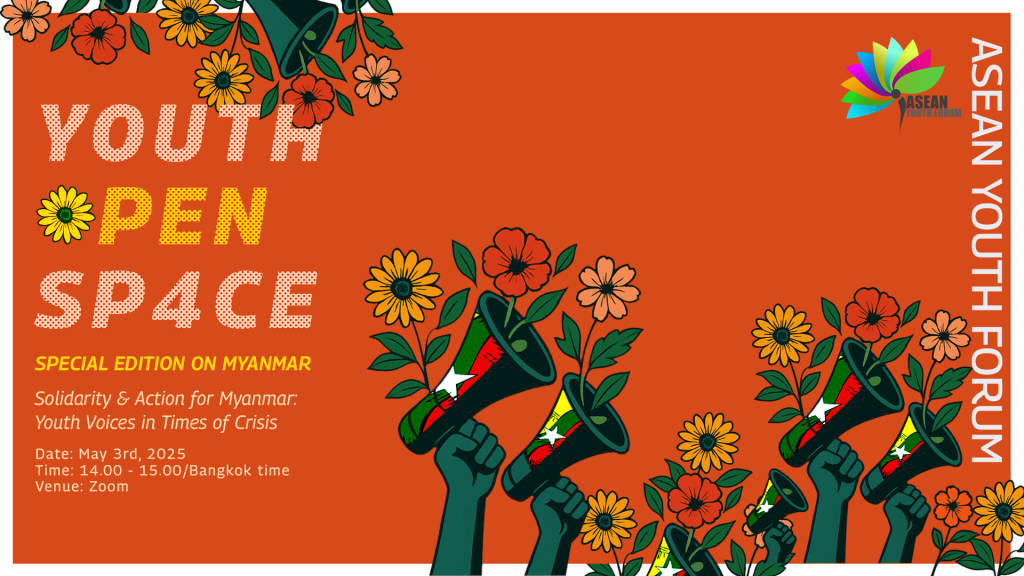
Open Discussion: Real Responses in Crisis
One of the key features of the event was the open discussion format, which allowed all participants to freely share their opinions. Everyone, from different backgrounds, was given an equal opportunity to contribute. This approach is crucial in fostering solidarity across countries and cultures, where every perspective can help achieve a shared goal.
Some of the main topics discussed included:
- The Humanitarian Crisis and Its Impact on Youth
How the crisis affects youth, both mentally and in terms of lost opportunities due to political and social instability. - Overcoming Trauma and Building Resilience
Youth discussed how they could support their peers who are affected by trauma from natural disasters or violence. - The Role of Technology and Social Media in Solidarity Actions
Technology has been a vital tool in organizing support, raising awareness, and speeding up aid distribution. It also serves as a platform to speak out on humanitarian issues globally.
The situation in Myanmar, already fragile due to ongoing political instability and civil war, has worsened significantly after a recent earthquake. In an environment where access to aid is already limited, the earthquake has only intensified the challenges faced by the affected population. Both local and international responders have struggled to provide effective relief, hindered by political conflict, military intervention, and logistical issues.
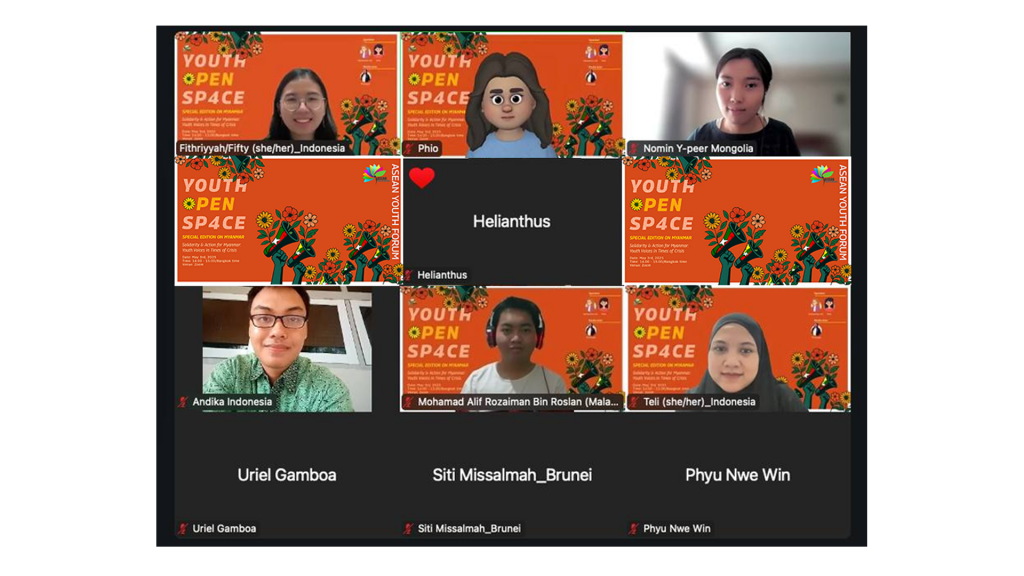
Pio shared the struggles of those closest to the epicenter of the earthquake, highlighting how difficult it is to access affected areas due to the ongoing conflict:
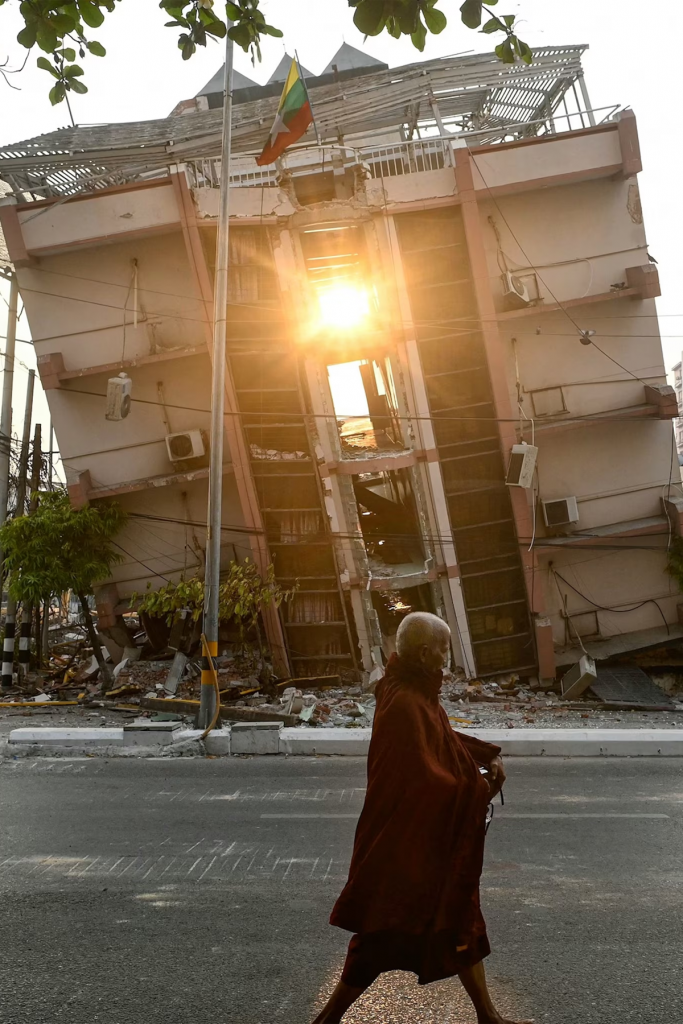
“But those who are very close to the earthquake’s epicenter… are severely affected. Unfortunately, due to the political situation and civil war, despite some efforts to respond, the help that can reach these areas is still very limited… That’s why we’re losing so many lives, and it’s heartbreaking to say this… even one of my friends passed away.”
This statement underscores the severe limitations on aid access, not only due to logistical constraints but also because of the constant violence and military control that hampers humanitarian efforts. Helianthus Oo, the Queer, disabled intersectional activist from Myanmar, further emphasized the dire situation on the ground:
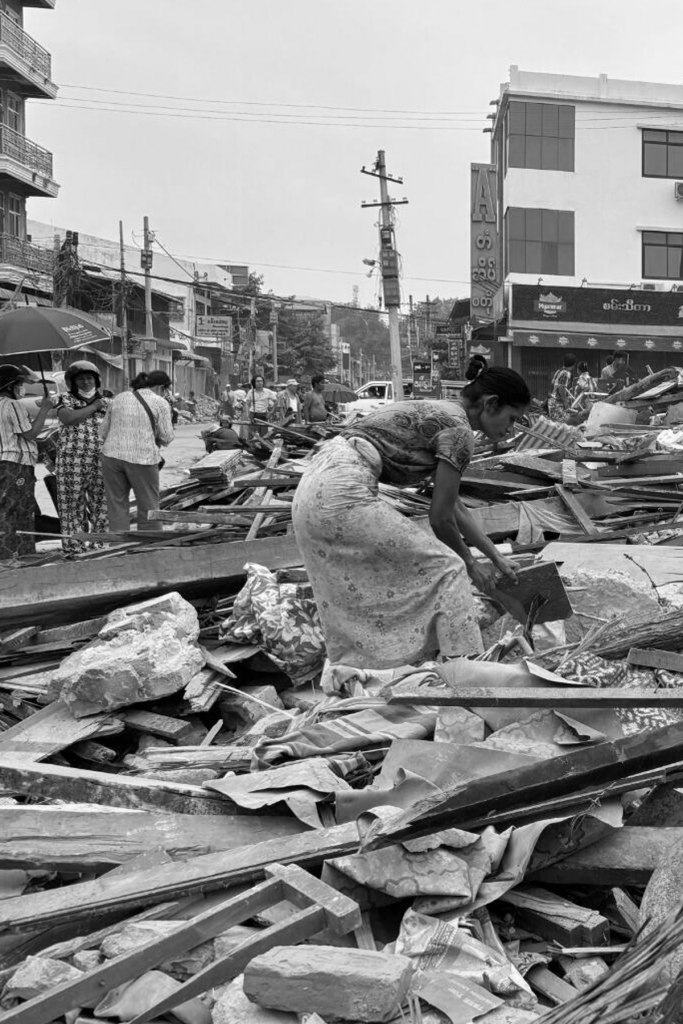
“So, the number of people who have died, the number of people who have lost their homes due to the earthquake, and the number of survivors still living outside without adequate shelter… the numbers are rising day by day. Our people were already vulnerable due to the ongoing war and limited resources. Now, because of the earthquake, they are in an even more urgent situation.”
“In the last few years, attacks and arrests of civil society workers, as well as the closure of hospitals and other essential facilities, have also blocked their access to aid.”
“Despite the immediate assistance from international teams, many complications occur due to a lack of coordination, shortages of equipment, and the absence of guidance from local authorities.”
“Local rescue teams… had to use their bare hands and bodies to rescue people. Just imagine how many lives could have been saved if these barriers hadn’t happened.”
Helianthus Oo – Myanmar Queer, Disabled Intersectional Activist

“Military violence and disruptions to humanitarian efforts, such as power and internet outages, continue. This is a repetition of how the military junta has used aid as a weapon in the past.”
“They shot at a Red Cross convoy coming from China… According to Radio Free Asia, even a month after the earthquake, the junta ‘hasn’t given a single bottle of water to the people.’”

“With the rainy season coming and the military having violated the ceasefire through over 200 airstrikes, this crisis will only worsen. Thousands still lack access to shelter and basic needs.”
ASEAN Youth’s Role in Humanitarian Efforts
In light of these immense challenges, Phio emphasizes the importance of continued support:
“We must support the right to live with dignity for the people in Myanmar. Even one dollar, one Singapore cent, or one Indonesian rupiah – that means a lot. Get involved in fundraising campaigns.”
She adds the importance of cross-border solidarity and collaboration:
“We need to strengthen our collaboration, talk more about the real situation in this country, and offer support to volunteers providing mental health and recovery support.”
Phio also calls for technological innovation in disaster response:
“It would be great if ASEAN could develop tech-based collaboration, like a regional data platform to share real-time information and identify the actual problems so we can respond better to disasters.”
Helianthus echoes this need for shared information spaces, underlining the significance of documentation and continued conversation:
“Another important aspect is documentation and post-period dialogue. Open spaces like this are very important; we need to keep sharing information with one another about the situations that are unfolding.”
About the Open Space: Who Was There and Why It Matters
The statements by Phio and Helianthus were delivered during a special Open Space Dialogue on Humanitarian Crisis in Myanmar, held on May 11, 2025, in Jakarta, as part of the wider initiative to amplify voices from conflict-affected communities. The event was organized by ASEAN Youth Forum in collaboration with Progressive Voice Myanmar, FORUM-ASIA, and several civil society partners.
This open space was created as a safe, inclusive platform to allow youth, activists, and community leaders—especially those directly affected or working on the ground—to speak freely about the challenges they face and the urgent needs in the wake of the earthquake and ongoing conflict. Participants included:
- Youth activists from Myanmar, including displaced persons
- Regional youth leaders from Indonesia, Malaysia, Thailand, and the Philippines
- Human rights advocates and journalists
- Representatives from humanitarian aid networks
- Mental health and community resilience workers
The purpose of the open space was not only to inform and raise awareness but also to document real-time testimonies and strengthen regional solidarity through storytelling, resource-sharing, and community building. It was also a space to discuss grassroots-driven solutions, bypassing formal bureaucracies that often delay humanitarian responses.
Youth Actions: What Can Be Done?
This situation illustrates the pressing need for ASEAN youth to take action—whether by advocating for more aid, volunteering, creating solidarity networks, or organizing at the community level. As Helianthus and Phio’s reflections show, youth are not only recipients of aid, but also the first responders, the storytellers, and the advocates working for lasting peace and justice.
Their voices from the ground are a powerful reminder: the road to recovery in Myanmar requires not just aid, but also solidarity, visibility, and sustained commitment. The participants were also encouraged to come up with real action steps.
- Empowerment through Education
Providing access to education and practical skills for youth in Myanmar so they can contribute to post-crisis recovery. - Digital Solidarity
Using social media to raise awareness about Myanmar’s situation, fundraise, and support humanitarian efforts. - Virtual Volunteering
Organizing activities that allow youth from other countries to volunteer, such as translating materials or helping with data collection for aid distribution. - Advocacy and Policy Influence
Youth can encourage ASEAN and international organizations to pressure the Myanmar government to open up humanitarian aid and ensure the safety of aid workers on the ground.
Don’t forget to follow our social media channels to stay up-to-date and get involved in our activities!
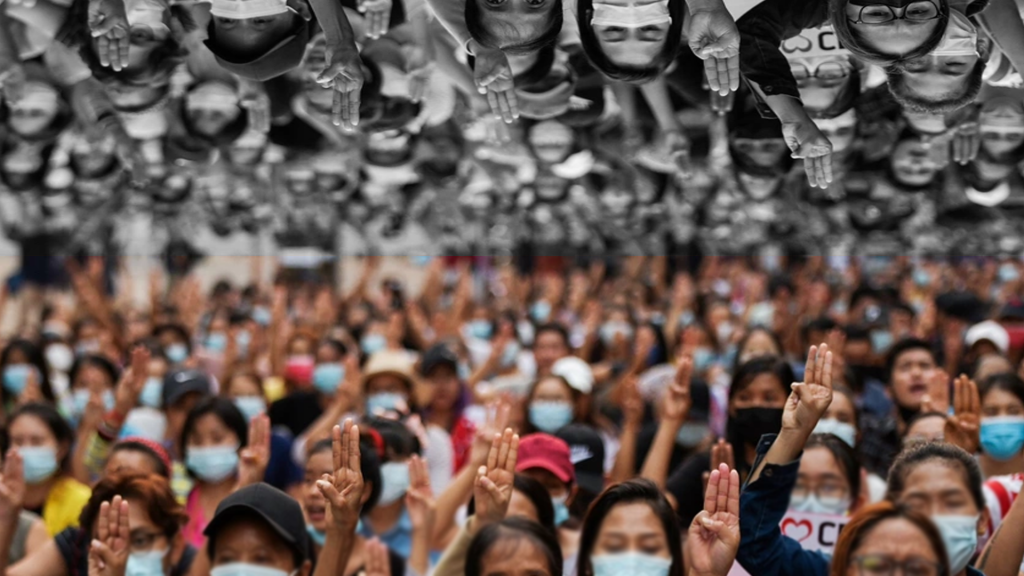
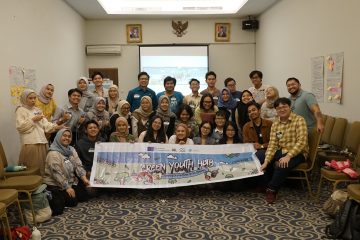
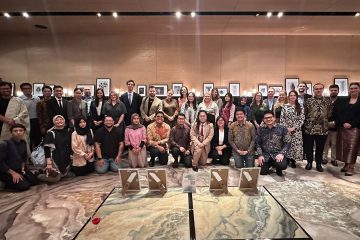
0 Comments